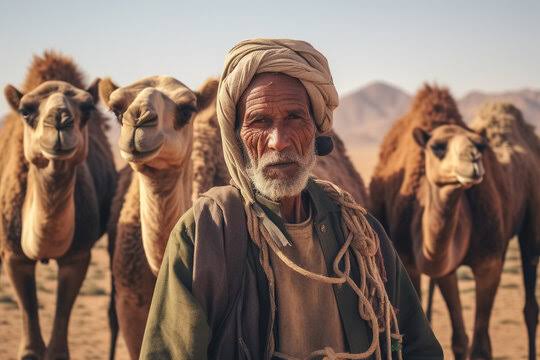
Climate change is a global challenge that transcends geographical boundaries, affecting regions in distinct ways. The Middle East, characterized by its arid and semi-arid climates, faces a unique set of challenges as the Earth's climate continues to evolve. In this article, we will explore the multifaceted impact of climate change on the Middle East and its implications for the environment, economy, and society.
Water Scarcity:
One of the most pressing issues in the Middle East is water scarcity, exacerbated by changing climate patterns. Rising temperatures and altered precipitation patterns contribute to increased evaporation, placing additional stress on already scarce water resources. Nations in the region, such as Iran, Iraq, and Jordan, grapple with diminishing water supplies, impacting agriculture, industry, and the daily lives of their populations.
Extreme Heat and Health:
The Middle East is no stranger to extreme heat, but climate change amplifies the frequency and intensity of heatwaves. Prolonged periods of extreme temperatures pose significant health risks, leading to heat-related illnesses and placing vulnerable populations, such as the elderly and outdoor laborers, at greater risk. Additionally, the combination of heat and changing disease vectors may contribute to the spread of infectious diseases.
Rising Sea Levels:
Coastal areas in the Middle East, including major cities like Dubai and Doha, face the threat of rising sea levels. As global temperatures rise, polar ice melts, causing sea levels to increase. This poses a direct risk to low-lying coastal regions, leading to saltwater intrusion into freshwater sources, disrupting ecosystems, and challenging urban infrastructure.
Impact on Agriculture:
Climate change disrupts traditional agricultural practices in the Middle East. Changes in temperature and precipitation patterns affect crop yields, and the increased frequency of droughts adds to the challenges faced by farmers. Adaptation strategies, such as the development of drought-resistant crops and improved water management, become crucial for ensuring food security in the region.
Conflict and Migration:
The environmental challenges posed by climate change can contribute to social and political instability in the Middle East. Competition for scarce resources, particularly water, may escalate existing tensions and contribute to conflicts. Additionally, the environmental stressors can drive internal and cross-border migration, further straining regional stability.
Gulf Cooperation Council (GCC) Vulnerability:
The Gulf region, home to oil-rich countries like Saudi Arabia, the UAE, and Qatar, faces unique challenges. Rising temperatures in the Gulf are higher than the global average, with daytime temperatures frequently exceeding 50 degrees Celsius (122 degrees Fahrenheit). This poses risks not only to human health but also to the infrastructure, as extreme heat can affect the functionality of critical systems.
Impact on Biodiversity:
The Middle East hosts unique ecosystems, including deserts, mountains, and coastal areas. Climate change disrupts these ecosystems, affecting flora and fauna adapted to specific environmental conditions. Shifts in temperature and precipitation patterns may lead to the loss of biodiversity, impacting not only the natural balance but also traditional practices of communities relying on these ecosystems.
The impact of climate change on the Middle East is complex and multifaceted, affecting various aspects of life in the region. Urgent and coordinated efforts are needed to address these challenges, including the development of sustainable water management practices, investment in renewable energy sources, and the implementation of policies that promote resilience and adaptation. As the Middle East navigates the consequences of a changing climate, global collaboration becomes essential to mitigate the adverse effects and build a more sustainable future for the region.


You must be logged in to post a comment.